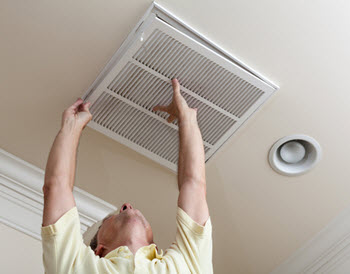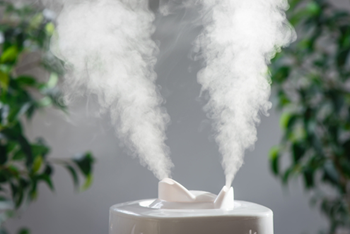 One thing that’s guaranteed to have a significant impact on both your life and your overall health is the air you breathe. Television and newspaper articles regularly discuss many myths about indoor air quality. The only sure way to separate the fiction from fact is by learning more about the science that lies behind it all. Indoor air quality is something that you cannot ignore given that most people spend the majority of their days inside.
One thing that’s guaranteed to have a significant impact on both your life and your overall health is the air you breathe. Television and newspaper articles regularly discuss many myths about indoor air quality. The only sure way to separate the fiction from fact is by learning more about the science that lies behind it all. Indoor air quality is something that you cannot ignore given that most people spend the majority of their days inside.
Common Myths Pertaining To Indoor Air Quality Moorestown NJ
Contents
- 1 Common Myths Pertaining To Indoor Air Quality Moorestown NJ
- 1.1 Myth 1: The Air Inside Is Better In Quality Than The Air Outdoors
- 1.2 Myth 2: Air Quality Can Be Improved With Air Fresheners
- 1.3 Myth 3: Your Indoor Air Quality Isn’t Affected By Your Home HVAC System
- 1.4 Myth 4: You Can Improve Indoor Air Quality By Opening A Few Windows
- 1.5 Myth 5: Indoor Air Can Be Cleaned By Ozone Generators
- 1.6 Myth 6: Indoor Air Quality Can Be Improved With Humidifiers
- 1.7 Conclusion
In this article, we will dispel some common indoor air quality myths. You may believe these myths without realizing that they do more harm than good.
Myth 1: The Air Inside Is Better In Quality Than The Air Outdoors
In many cities throughout the world, there is a high level of pollution. It is a cause for serious concern. Comparatively, the air inside of the home and in the workplace might seem a lot better. Many buildings and other closed spaces, however, are full of organic and chemical contaminants that lower the air quality. By making sure that only clean air circulates throughout your home or workplace, you can ensure that you are breathing healthy air.
Myth 2: Air Quality Can Be Improved With Air Fresheners
Using an air freshener to combat odd smells and odors might seem like an easy way to fix your indoor air quality or IAQ. Sure, you can make your home smell more fragrant by using an air freshener. However, most of these products are rife with chemicals. Regularly using these products, especially over an extended period, can cause chemicals to start building up in the space, thereby harming the air you breathe.
Myth 3: Your Indoor Air Quality Isn’t Affected By Your Home HVAC System
 A lot of people think that the HVAC system is only responsible for cooling and heating the home. However, they don’t know that it also has a significant impact on indoor air quality.
A lot of people think that the HVAC system is only responsible for cooling and heating the home. However, they don’t know that it also has a significant impact on indoor air quality.
According to experts, poor IAQ causes many illnesses in the home. By making sure that home and office buildings are at a consistent and comfortable temperature level, you can boost the quality of the indoor air.
Within any building, a forced air HVAC system is going to filter the air before supplying it to different rooms. With proper maintenance, you can ensure that the air that it circulates is sufficiently healthy for building residents to breathe. When heating and cooling systems do not receive proper maintenance, they are not able to function correctly. Instead, they start trapping pollutants which, in turn, circulate through all of the ductwork and vents.
Myth 4: You Can Improve Indoor Air Quality By Opening A Few Windows
In many cities, the outside air is very polluted and contains a number of noxious gasses and harmful particulate matter. As such, simply opening a few windows is not going to improve the indoor air quality in your home. Instead, you might think about combining your current HVAC system with mechanical ventilators. Mechanical ventilators will filter the air so that clean air can be circulated throughout the home or office building by the HVAC system.
Myth 5: Indoor Air Can Be Cleaned By Ozone Generators
Ozone gas generators serve to address odors, chemicals, and other pollutants in buildings and homes. However, according to research, ozone gases may be a risk to human health and have been linked with conditions like respiratory ailments and throat irritation.
Myth 6: Indoor Air Quality Can Be Improved With Humidifiers
 Throughout the winter, a lot of people are turning on humidifiers to boost indoor moisture levels. If you have dry air in your home or office building, contact a licensed HVAC company to find out whether your heating and cooling system is functioning as it should.
Throughout the winter, a lot of people are turning on humidifiers to boost indoor moisture levels. If you have dry air in your home or office building, contact a licensed HVAC company to find out whether your heating and cooling system is functioning as it should.
Dry air could mean that inside air is leaking out of the home. You should also note that increasing moisture levels in your home or office building may create the perfect conditions for bacteria, fungi or mold development.
Fumes and bad odors that cause your eyes to water are hardly the sole signs that your home or office space has a bad indoor air quality. It is essential to be mindful of the type of air that you’re breathing in when in a closed environment. The HVAC system plays a vital part in keeping living and working spaces at comfortable, ambient temperatures. It additionally ensures that the air that it circulates is both healthy and clean. Routine maintenance and regular HVAC service visits will keep the indoor air quality at an acceptably high level.
Conclusion
When you want to find the top strategies for boosting the quality of your indoor air, contact PFO Heating & Air Conditioning. Our seasoned HVAC technicians have a very comprehensive understanding of the best methods for improving home IAQ and for making your living environment a much healthier place all-around.
As stated above, to prevent pollution of your indoor air and excessively high home energy costs, you have to make sure to schedule annual system maintenance for both your furnace and air conditioner. Don’t delay in scheduling repairs whenever your HVAC equipment stops functioning as it should. Having a properly functioning system will increase the overall efficiency of your home while additionally preventing pollutants and other contaminants from entering and building up within the indoor air.
Get in touch with PFO Heating & Air Conditioning right now to set your appointment up.
Some of the areas we service include Maple Shade, Marlton, Moorestown, Mount Laurel, and these zip codes: 08052, 08053, 08057, 08054 as well as all surrounding areas in Burlington County, New Jersey.
Click here to contact us now or call us at (800) 253-9001 to find out more!



